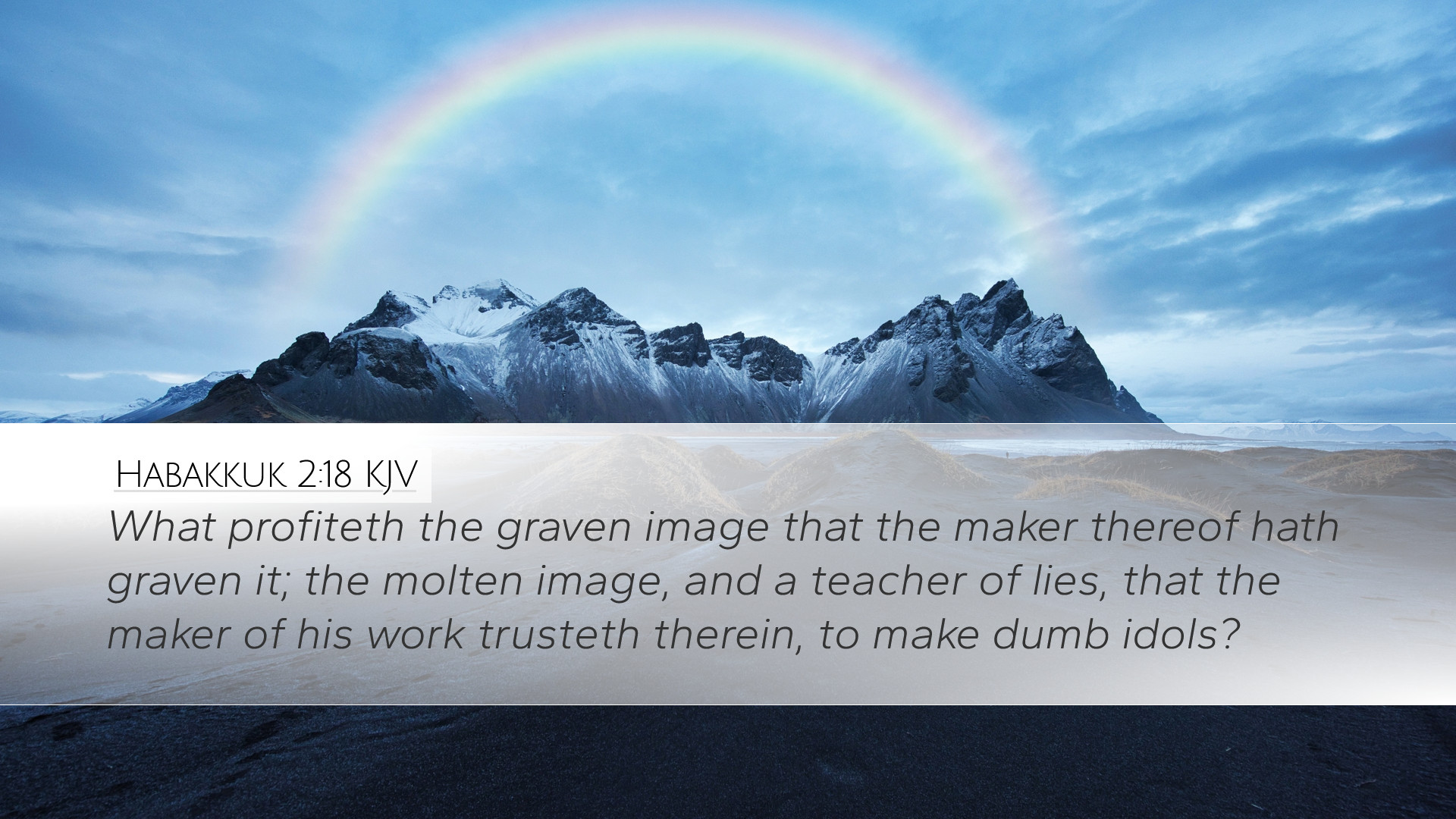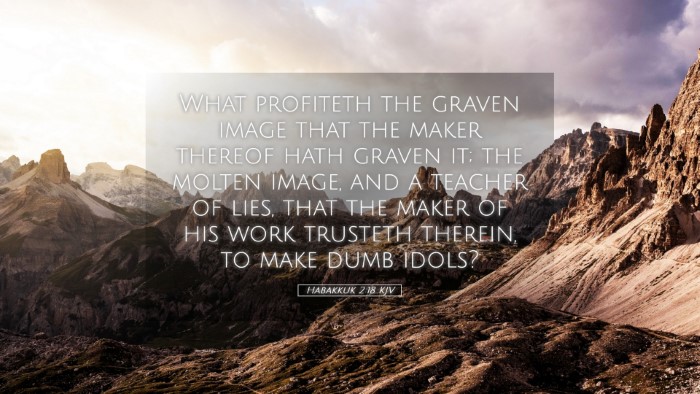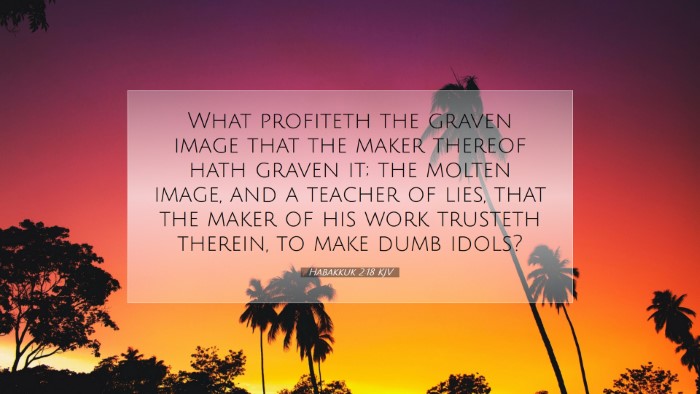Old Testament
Genesis Exodus Leviticus Numbers Deuteronomy Joshua Judges Ruth 1 Samuel 2 Samuel 1 Kings 2 Kings 1 Chronicles 2 Chronicles Ezra Nehemiah Esther Job Psalms Proverbs Ecclesiastes Song of Solomon Isaiah Jeremiah Lamentations Ezekiel Daniel Hosea Joel Amos Obadiah Jonah Micah Nahum Habakkuk Zephaniah Haggai Zechariah MalachiHabakkuk 2:18
Habakkuk 2:18 KJV
What profiteth the graven image that the maker thereof hath graven it; the molten image, and a teacher of lies, that the maker of his work trusteth therein, to make dumb idols?
Habakkuk 2:18 Bible Commentary
Commentary on Habakkuk 2:18
Habakkuk 2:18 states: "What profiteth the graven image that the maker thereof hath graven it; the molten image, and a teacher of lies, that the maker of his work trusteth therein, to make dumb idols?" This verse speaks directly to the futility of idolatry and the reliance on lifeless objects that cannot provide true guidance or substance. Below is a detailed commentary derived from various public domain sources.
General Context
In the prophetic book of Habakkuk, the prophet questions God about the justice of His ways amidst the rise of Babylon. Chapter 2 contains God's response to Habakkuk and focuses on the themes of faith, divine judgment, and the contrast between the righteousness of God and the folly of idolatry.
Meaning and Interpretation
- Futility of Idolatry:
Matthew Henry emphasizes that the phrase "What profiteth" indicates a critical examination of idol worship. The idols, crafted by human hands, are lifeless and devoid of true power. This reveals a fundamental truth about reliance on material objects for guidance and meaning.
- Characteristics of Idols:
Albert Barnes elaborates on the description of idols as "graven" and "molten," highlighting the effort that individuals put into creating images that ultimately lead them astray. These images not only fail to represent the divine but also function as "teachers of lies," deceiving worshippers into believing that they possess power or wisdom.
- Trust in God vs. Idols:
Adam Clarke points out the contrast between trusting in God and trusting in idols. The latter leads to a state of spiritual blindness where the idolater, in their folly, places confidence in something that cannot speak or act, resulting in a deeply ingrained form of delusion.
Theological Implications
- The Nature of God:
The commentary reflects on the sovereign nature of God, who is fully alive and engaged with His creation. In contrast, idols represent a distortion of reality and a rejection of the living God who desires a relationship with humanity.
- Rejection of False Teachings:
The reference to "a teacher of lies" serves as a warning against accepting false teachings and counterfeit forms of spirituality. This theme resonates with New Testament teachings regarding false prophets and the importance of discernment in faith.
- Call to Faithfulness:
The verse serves as a reminder to the faithful to remain steadfast in their trust in the Lord. As idolatry is shown to be an empty pursuit, believers are called towards a deeper reliance on God's revelation and His Word as the true source of wisdom and guidance.
Application for Today
- Contemporary Idolatry:
Modern believers should reflect on what constitutes "idols" in their lives today—anything that competes with God for their time, attention, and reverence. This could be material possessions, achievements, or even ideologies that detract from the worship of the one true God.
- Spiritual Discernment:
In a world that offers many competing narratives and 'teachers', the importance of discerning the truth is paramount. Habakkuk 2:18 calls for Christians to seek wisdom that is grounded in Scripture rather than succumbing to the empty promises of modern ideologies.
- Encouragement in Ministry:
This verse serves as an encouragement for pastors and leaders to guide their congregations away from cultural idols and towards a vibrant faith in Christ — one that remains steadfast even amid the challenges of a postmodern society.
Conclusion
Habakkuk 2:18 powerfully encapsulates the message of the futility of idolatry and the necessity of placing trust solely in the living God. By drawing insights from historical commentaries, believers today can glean rich theological truths that encourage a more profound faith and commitment to God in an age filled with distractions.


